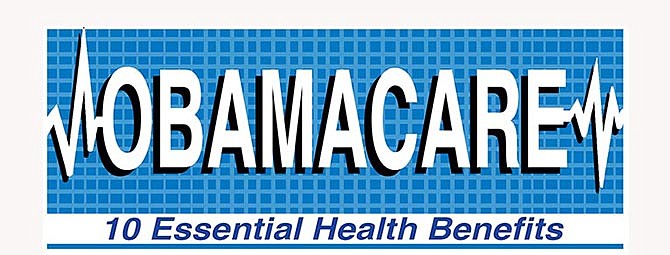Editor's note: This is the second in a series of stories that will explain the 10 essential health benefits required under the Affordable Care Act and explore what effect those requirements will have on patients and caregivers.
When the full effects of the Affordable Care Act are in place, all health insurance plans must cover emergency services - one of 10 health benefits required by the law.
10 essential health benefits
[]The ACA is a law signed by President Barack Obama in 2010. According to the U.S. Department of Health and Human Services, the law seeks to strengthen the health care system by extending health coverage to the uninsured, improving health care quality and patient safety, emphasizing primary and preventive care, reducing health care costs, ensuring access to quality health care and promoting use of health information technology. The law also requires everyone to have health insurance in 2014, or otherwise pay a fine.
How to effectively manage emergency services has been a key issue on the minds of local health care officials.
They say emergency department visits are up, even without the ACA required health benefits, which will go into effect Jan. 1.
Amy Berendzen, director of marketing and public relations at Capital Region Medical Center in Jefferson City, said the average number of monthly emergency room visits at the hospital has increased since April.
"The average is around 2,700 to 3,000 a month," she said.
Heather Feeler, communications coordinator at St. Mary's Health Center (SMHC) in Jefferson City, said the hospital's emergency department sees nearly 35,000 visitors a year - which averages to nearly 3,000 visitors a month.
In an April News Tribune article titled "Officials look for more effective, cheaper access to health care," CRMC and SMHC officials said the demand for the emergency department is because sometimes people use emergency services for the wrong reasons, making the departments busier and making health care more expensive.
In April, Janet Weckenborg, CRMC vice president of operations, said: "Sometimes, what we find is that communities gravitate to using the emergency room for things that are not that high-class of trauma or an immediate emergent situation."
She said she and some of her colleagues had looked into an emergency department model recently implemented by Heartland Health in St. Joseph that had produced results that showed fewer patients using the emergency department for less serious issues.
The model outsources less serious patients to clinics and primary care physicians.
CRMC has implemented a "Door to Doc" program in its emergency department. It allows less-sick patients to be triaged - assigned a degree of urgency - quickly, sent to a room, seen by a physician and given treatment. Sicker patients are taken to another room where they receive treatment.
Previously in this series:
Affordable Care Act mandates 10 essential health benefits
Your questions
One reader posed a question after last week's Affordable Care Act story:
Q: If you live in Missouri, have no income (no job), no unemployment, basically homeless, not filing income tax return because you didn't earn any money, are you still required to apply for the Affordable Health Care Program?
A: No. According to healthcare.gov/exemptions, you may qualify for an exemption if "you don't have to file a tax return because your income is too low."
Do you have questions?
We want to answer your questions regarding the Affordable Care Act; email reporter Olivia Ingle at [email protected] or call her at 573-761-0248.
Also, feel free to share your experiences with the ACA or your experiences signing up for coverage in the Marketplace.

